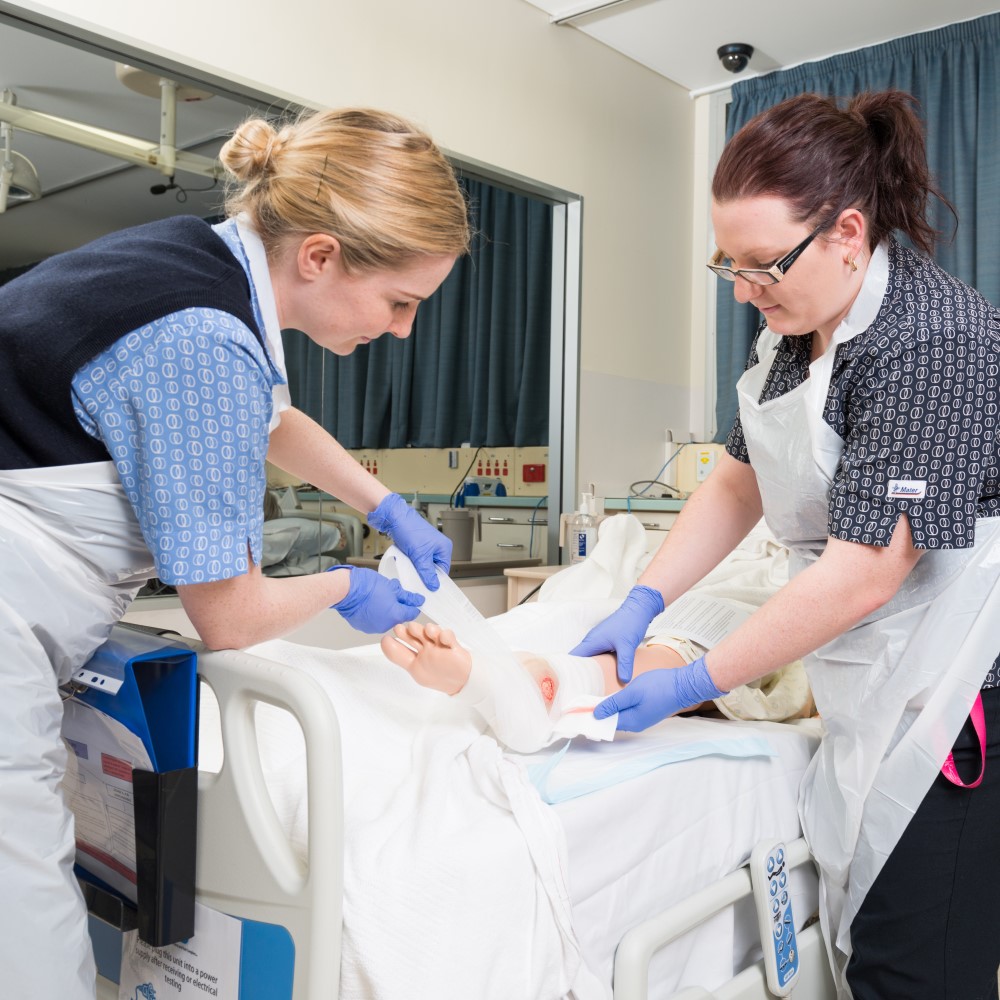Exploring the world of Enrolled Nursing versus Registered Nursing
 Nursing is an extremely rewarding career and one that has many pathways and career opportunities. As a Mater Education Diploma of Nursing graduate, you’ll have the qualification to be able to apply for national registration as an Enrolled Nurse (EN) and enter the healthcare workforce. So what does that mean for you and how does this differ to a Registered Nurse (RN)?
Nursing is an extremely rewarding career and one that has many pathways and career opportunities. As a Mater Education Diploma of Nursing graduate, you’ll have the qualification to be able to apply for national registration as an Enrolled Nurse (EN) and enter the healthcare workforce. So what does that mean for you and how does this differ to a Registered Nurse (RN)?
Educational requirements
One of the main differences between an EN and an RN is the level of study required by each. An Enrolled Nurse is required to complete a Nursing and Midwifery Board of Australia (NMBA) approved Diploma of Nursing through a private or public Registered Training Organisation. The Diploma of Nursing program is offered over 18 months full-time or 3 years part-time at Mater Education.
To become a RN in Australia, it is a requirement to complete a Bachelor of Nursing degree, obtained through university. Most Bachelor of Nursing degrees take approximately three years of full-time study to complete, however for those with an EN qualification, the duration of study can be shortened.
Pathways
Becoming an EN is a perfect step to a career in healthcare. Upon graduating, you’ll be ready and qualified to start work in clinical care. For those who are looking to develop their career further, ENs can also continue study to become an RN by completing a Bachelor of Nursing degree. The practical experience gained as an EN is invaluable to a smooth transition into Registered Nursing, and EN graduates can receive credit for their Diploma of Nursing studies towards Bachelor of Nursing programs.
Scope of practice
An EN works under the direct or indirect supervision of a RN who is responsible for determining, coordinating and providing safe, quality nursing care. Care can range across the lifespan and through many different environments extending from community, hospitals, general practice or aged care settings. This may involve assessing patients and creating, facilitating and updating healthcare plans and implementing and evaluating health outcomes. ENs and RNs work closely together where an EN’s capability includes providing direct and indirect patient care, reflecting, analysing and improving practice and demonstrating professional and collaborative practice. An ENs responsibility may include reviewing patients and monitoring their response to treatments and their role and demeanour is vital to a patient’s overall experience.
Whether you decide to pursue study to become an EN or RN, you are choosing to be part of a rewarding, and humbling industry. The opportunities for growth in nursing are endless and regardless of what you choose, you will be a valuable member of a healthcare team.



